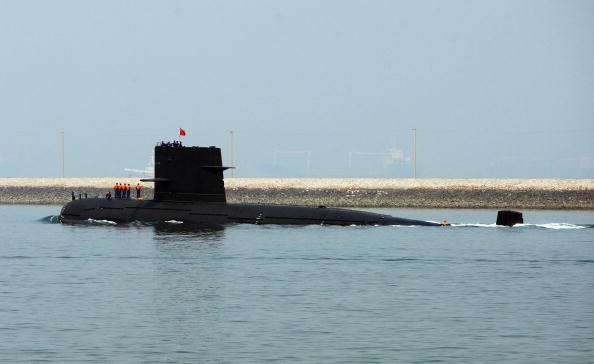China’s plan to send submarines carrying nuclear missiles to the Pacific is part of a greater plan of gaining control and power, a report says.
On Wednesday, The Week explained in last week's news that the nuclear-armed submarine was not entirely meant to defend China from the United States' plan to deploy an anti-ballistic missile system in South Korea.
The outlet implies that the report from The Guardian appears to be a ploy to hide the true reason for the controversial move, which basically involves China trekking the same path the United States and the Soviet Union once did.
The Excuse
Last week, the U.K.-based media outlet revealed China's plan to deploy an underwater vessel to the Pacific near the coast of the U.S. as the two most powerful countries in the world continue on a rocky alliance.
According to the report, Beijing confirmed that they do plan on sending nuclear-armed submarines but claimed that it was only to respond to Washington's deployment of the THAAD anti-ballistic missile system along the borders of the Korean Peninsula.
"The Chinese military is poised to send submarines armed with nuclear missiles into the Pacific Ocean for the first time, arguing that new U.S. weapons systems have so undermined Beijing's existing deterrent force that it has been left with no alternative," the report stated.
Chinese officials also pinpointed other threats including the development of hypersonic glide missiles that would have the capability to hit their country in less than an hour after launch.
The True Reason
While some may have bought the idea, The Week contributor Kyle Mizokami seems to be unimpressed and unconvinced by what he called China's "flimsy" excuse to paint an image where they are the victims.
"While it is true that the U.S. is deploying THAAD on the Korean Peninsula," he wrote, "the system can only be used against missiles targeting South Korea--coming from China's ally, North Korea. China's explanation is designed to make Beijing look like the victim."
According to him, the People's Republic of China has planned the move for decades in order to become one of the world's superpowers.
"As a rising power, China is roughly charting the same course the Americans and Soviets did 50 years ago," he continued. "China has land-based missiles, bombers, and missile submarines. And China is establishing its own bastion--in the South China Sea. This sea grab is a logical response to China's strategic dilemma."
Mizokami also noted that China's aggression in the South China Sea territorial grapple may be a strategic necessity and not mere aggression, something which may not have a diplomatic result.


